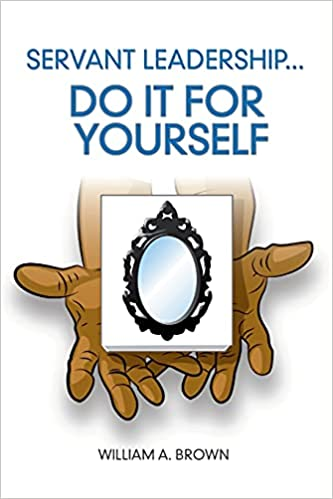Article-Detail

Letting Go
On July 10, 2009, H. Beaty Chadwick was released from prison after serving 14 years for contempt of court. In 1995, the courts believed that he hid his family fortune to avoid making a fair settlement to his soon to be ex-wife. In 1975, he, a 39 year old corporate lawyer, and she, a 21 year old homemaker were married and settled into a life of luxury, cars, cocktail parties, and classical music. His wife claims that although she did live in the mansion, she was expected to live on $600 a month, clean the house and pool, mow the lawn, and cook the meals all with no domestic help. She further claims that she was even given a ration of six sheets of toilet paper per visit to the bathroom. So, after nearly 20 years of marriage, she packed two bags of clothes, and left him and her life of luxury while he was gone. In court, Beaty Chadwick insisted that their $2.75 million fortune was lost in a bad investment and that he didn’t have the money to settle up with his wife. The court ordered him repeatedly to comply with the order and bring in the money, he refused every order. As a result, he was sent to prison until he was prepared to comply, and that he did. For 14 years. The longest prison term for contempt of court in U.S. history.
It is with this story as a backdrop that I write about the cost of holding grudges for leaders. True, it is very unlikely that you will find yourself in divorce court as a result of your leadership, however, every leader will find themself in the position of having to decide whether to hold onto pain and resentment or let it go. In ancient India, monkeys were a common nuisance and a source of frustration, messes, and ruined stores of food. Because the monkeys were nimble, they’d often escape the clutches of the villagers. That is, until a very effective monkey trap was developed. Villagers would get a coconut, and tie it to an anchor on the ground or to the branch of a tree. They would then cut a small hole in the coconut and put a small amount of fruit, nuts, or sweet rice. The hole would be small enough for a flexible hand to go in but not a fist. A curious monkey would come by, investigate, and find the treats. That monkey would then put its flexible hand through the hole and grab a handful but not be able to withdraw its hand no matter how hard it tried. When the villagers noticed they had a monkey on the hook, they could just walk up and trap the monkey to be caged and kept, or turned into a meal. All the monkey had to do was let go and it would be free, but they never do. Just like H Beaty Chadwick, they pay a tremendous price for not letting go.
Leaders have things said about them, mostly made up from small, inaccurate information. People challenge their competence, character, and intentions and do really hurtful things toward people in charge. It comes with every leadership role, not just yours. A natural response would be to strike back or to wait for an opportune moment to settle the score, I’m proposing that leaders do neither. The longer you allow slights to occupy your mind, the less time and energy is spent on doing the important work of supporting people, and moving your organization forward. It doesn’t mean that you shouldn’t respond and just make peace with being a punching bag for disgruntled others, it means shake off the hurt and respond in ways that improve things.
Holding grudges is a damaging, repetitive habit that causes you to ruminate on negativity constantly having a harmful impact on the holder of the grudge and the target. Your ego will tell you that maintaining the upper hand keeps you in the lead, from the outside, you look like the monkey who won’t pull its hand out of the coconut. What your ego won’t tell you is that the leader diminishes himself in the eyes of the team with every “get back”. Everyone understands the amount of stress the leader is under, and they all understand how hard it is to carry that burden, this is why many people will tell you they don’t want that responsibility. What they need to see is someone who can rise above it, stay focused, and do what's right despite the challenges of the job and other people. That’s inspiring. Psychologists and philosophers have studied grudges and its impact for centuries and from what I’ve studied there are three pieces of guidance I can offer for leaders who feel slighted.
1. Be grateful it's in the past. It's over and in the past, it can’t be changed but it doesn’t have to live with you for the rest of your life or career. Holding a grudge is a choice, and so is letting go. What happened is in the past, maybe the recent past, but the past nonetheless. Time to move on.
2. Learn from it. What happened to cause this behavior toward you? What can be done to avoid it in the future? Examine what happened from a clinical perspective. Look at it as if someone else experienced it, how would you describe it? Trace your steps and consider other options.
3. Fix it. Once you’ve gotten over the sting and have figured out what happened, it's time to respond in a way that keeps the target off of your back. Now, keep in mind, as the leader you will take more blows than anyone else on your team so expect to repeat this process many times but not to worry, it will get easier with time and experience. Talk about it to the team and/or individuals, hear their side of the story, and offer options to them.
Mr. Chadwick could have saved himself 14 years in prison by letting go, monkeys in India could have gone free by letting go, and leaders can enjoy a less stressful workplace by simply letting go. The holder of the grudge does more damage to self than anyone else, there is no real benefit to getting vengeance, only a short ego boost. Then the other person has to respond, then you ruminate, and respond, and round and round usually until the leader gets fired or has a heart attack. Live to fight another day. The more you expose yourself to others, the more you can and will take shots. The better prepared you are to deal with it, the more successful you’ll be. Another truth, they aren’t thinking about it nearly as much as you are so learn to let go. Do that and you’ll have more time to laugh, learn, lead, and SOAR!
William A. Brown
September 20, 2020
https://abcnews.go.com/2020/story?id=8101209&page=1
https://kbgenie.wordpress.com/2008/06/04/the-south-indian-monkey-trap/
https://en.wikipedia.org/wiki/Streisand_effect
https://www.psychologytoday.com/us/blog/think-well/201712/how-let-go-unhealthy-grudges




